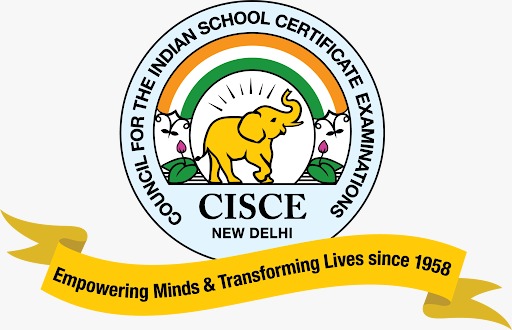The word ‘tips’ is often misconstrued as shortcuts to success or achieving objectives. But tips are the subtle weight added to the strategies that help us build more time and focus more to achieve our goals These tips help in implementing the strategies where students can enhance their learning outcomes while reducing stress and frustration. These tips help effective studying techniques to promote deeper comprehension and critical thinking skills, enabling individuals to apply knowledge more effectively in various contexts and subjects. Mastering the tips that are relevant and supplementary to the strategies not only boosts academic performance but also fosters a lifelong ability to learn any subject efficiently. Here are some of them that equip individuals for success in the personal and professional.
3 Important Tips for Effective Studying
Importance of Maintaining Focus
Maintaining focus enables individuals to maximize productivity and achieve their goals. Staying focused allows for deeper concentration leading to better quality of work and quickly completing the task when the world is filled with distractions. It enhances cognitive abilities and improves problem-solving skills. Maintaining focus is vital for effective learning and memory retention. This enables the brain to process information more thoroughly. There are different strategies to maintain constant focus, which cultivate discipline and resilience. The prioritization of focus makes individuals navigate challenges with clarity and determination, ultimately realizing their full potential to reach their desired output.
Strategies for Overcoming Distractions and Concentrating on Studies
Distractions are the daily dose of challenges we face while achieving our goals or ambitions. Overcoming distractions in concentrating and studying requires implementing effective strategies. First, it is important to realize what are the distractions we face that deprive us of focusing on the work. First, create a conducive study environment free from interruptions, by maintaining minimal noise and clutter. Utilize time management techniques that break study sessions into manageable intervals. Practice mindfulness to stay present and refocus quickly when distractions arise. Employ technology wisely using apps or websites that block time-consuming apps or time-consuming ads. Prioritize tasks and set specific goals to maintain motivation. Establish a routine that is relevant to the current lifestyle and stick to it. Incorporate regular exercise and adequate rest to support cognitive function.
Not Procrastinating till the Last Moment
In simpler terms, procrastination is postponing today’s work for tomorrow, or days later, which results in the accumulation of all the minimal work into a big problem that cannot be solved. Avoiding procrastination until the last moment is essential for effective time management and stress reduction. Firstly, start tasks into smaller manageable chunks and create a realistic schedule with deadlines well in advance of the due dates. Set specific goals and hold the self-accountable by tracking progress regularly. Create a conducive study environment to maintain focus by resisting the urge to delay tasks, and instead tackle them promptly. Utilize techniques like a 2-minute rule or 5-minute rule that suggest starting any task that takes less than 2 minutes immediately. This helps contribute a mindset of discipline and perseverance, which not only reduces stress but also allows for thoroughness in quality. By prioritizing proactive action in chunks over procrastination, one can enhance productivity and achieve greater success.
Discover Strategies to Beat Procrastination
To beat procrastination, one has to realize by identifying the root causes of procrastination such as fear of failure, perfectionism, or lack of motivation. Beating procrastination requires a combination of self-awareness and effective strategies By reducing the overwhelming work into bits and chunks, and rewarding yourself for completing tasks, reinforces positive behavior to beat procrastination. Here are the two most tried, tested, and suggestive strategies to beat procrastination and achieve the objectives.
Pomodoro method
The Pomodoro technique is a time management method developed by Francesco Cirillo in the late 1980s. Pomodoro in Italian means golden fruit or tomato. So, the Pomodoro device is shaped in the form of a tomato with regular time intervals from 5 minutes to 25 minutes.
Break tasks into intervals, traditionally, 25 minutes of focused work followed by a 5-minute break.
Each interval is called Pomodoro. After completing 4 Pomodoros, take a long break, typically up to 15-30 minutes.
This technique helps to maintain focus and productivity by providing a structural framework for regular intervals of time.
This encourages individuals to work with a natural rhythm of the retention span.
The time frames of this Pomodoro device can be set or adjusted based on individual preferences.
This enhances time management skills and reduces procrastination.
The 5-minute rule
The 5-Minute Rule is a study or an academic strategy that is productively aimed at overcoming procrastination and initiating tasks.
This helps in initiating a task just for 5 minutes regardless of motivation or inclination.
It helps in overcoming the initial resistance and inertia associated with starting a task or a work.
By breaking an overwhelming task into small manageable segments, it becomes less stressful and easier to begin.
It leads to a momentum shift where if an individual finds comfort and gets into the mood in these 5 minutes, they find it easier to continue working.
This provides low pressure, and ease into tasks, making huge tasks less overwhelming.
This 5-minute rule is flexible to apply to work-related, academic, or personal tasks.
This instills a sense of consistency and progress by fostering a habit of taking small steps towards goals.
This helps in combating procrastination and building motivation to tackle larger tasks.
Bonus Tips to Study Smarter
Here are the bonus tips for those who have unlocked their potential by beating distractions and procrastination.
Active Recall – Active retrieving of information strengthens memory. Test yourself on the material instead of simply re-reading notes from textbooks.
Teach someone else – Trying to teach a concept to someone else automatically reinforces the curiosity to get deep into the material. This helps in identifying areas where one needs further clarification.
Use Visual Aids – Create diagrams, mind maps, or flashcards to visualize information and aid in memory retention.
Chunking the work – Break down the large amount of information into smaller and manageable chunks, to enhance comprehension and retention.
Regular Review – Involve periodic review sessions into your timetable or schedule to reinforce learning and prevent forgetting. The longer-term retention is enhanced by this spaced repetition and regular review.
Stay Organized – Understand the goal to be achieved and keep the relevant materials and notes organized according to your scheduled timetable to minimize stress and maximize efficiency.
Take Breaks – Incorporating regular breaks in your study schedule prevents burnout and helps to maintain focus. Taking breaks is also a part of the retention technique to memorize the information.
Varied Study Locations – Setting yourself up in different study environments can prevent boredom and stimulate your brain. Occasional changes in study locations can enhance the mood to learn further about the subject.
Memory Techniques – Experiment with different devices that are relevant to play a crucial role in academics. Utilize these techniques based on varied subjects and concepts to remember complex information more effectively.
Stay Healthy – Prioritize your time with adequate sleep, exercise, and nutrition to optimize cognitive function and overall well-being.
Conclusion
In conclusion, by embracing these three secret study steps, every student can unlock their full academic potential. These tips empower learners to enhance comprehension, comprehension, retention, and overall success in their educational endeavors.
FAQs (Frequently Asked Questions)
These three secret study steps of success include active engagement with material consistent practice of active recall and incorporating space repetition into your study routine.
Active recall improves study sessions by reinforcing memory retrieval, deepening understanding, and enhancing long-term retention through repeated practice of recalling information without any external cues.
Spaced-out repetition involves reviewing information at increasing intervals of time and helps in optimizing memory retention and recall by reinforcing learning. This leads to enhanced long-term learning.
The Pomodoro technique aids in managing study time effectively by breaking study sessions into focused intervals. This helps in combating mental fatigue and improves concentration and productivity.
Set a conducive study environment, and specific goals, stay organized, seek clarification when needed, and take regular breaks to prevent burnout and maintain motivation in the educational endeavors.






